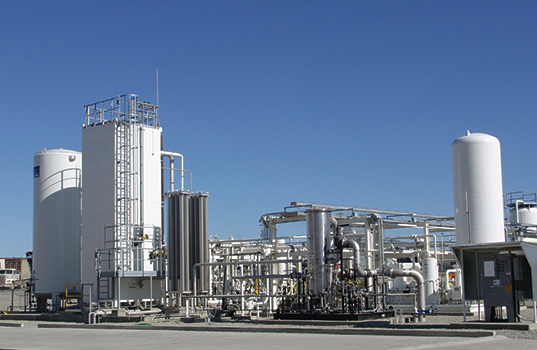CNG: Ramping up a cost and emissions-saving fuel source

One of the frontline conversations in Nigeria’s automobile sector is the conversion of diesel and gasoline-powered vehicles to run on compressed natural gas (CNG). The reason for this is not far-fetched – the recent fuel subsidy removal that increased the cost of gasoline to ₦540/litre has made the use of CNG attractive. There are also elements such as cost per unit of energy, fuel efficiency, energy density, and combustion efficiency.
For instance, it is reported that if CNG and gasoline are used as fuels in the same model of car, a savings of about 400% will be recorded in the CNG-powered vehicle as compared to the gasoline-powered car. In this case, CNG-powered vehicle owners are expected to pay about ₦110 for the energy outcome that ₦540/litre of petrol will deliver, showing the viability of the alternative energy option in the face of rising inflation. Such cost savings indeed look attractive in Nigeria today.
Apart from the cost implications, a crucial attraction for CNG is the value in helping Nigeria to achieve its Nationally Determined Contributions (NDCs) by reducing the amount of carbon emissions released from the country’s transportation sector. This is because of the fact that CNG produces about 20 – 30% less emission than the average gasoline-powered vehicle. Considering the fact that transportation is posited to be one of the main drivers of greenhouse gas emissions in the world, releasing about 7.3 billion metric tonnes in 2020 (which about is about 20% of global emissions), it is expected that decarbonization of the emission pathway via adoption of CNG would reduce the sector’s overall emissions.
In fact, with data showing that Nigeria’s transportation sector contributed about 48% of CO 2 emissions between 1971 and 2014, the use of CNG offers a significant way to reduce emissions from the sector, putting Nigeria on a pathway of environmental sustainability. A total switch from gasoline- and diesel-powered to CNG-powered vehicles in Nigeria would reduce the projected emissions from the transport sector (that is projected to increase by 50% by 2035 and 100% by 2050) by 20 – 30% by 2035 and 70% - 80% by 2050.
On this note, it is vital for stakeholders in Nigeria’s climate change space to comprehensively consider this energy source as a tool to achieve the country’s aim of reducing its emissions. The present administration of President Bola Ahmed Tinubu has therefore taken the right step to give momentum to the adoption of CNG in Nigeria. However, the private sector seems to be lagging behind in extensively domesticating the technologies for the conversion of gasoline- and diesel-powered vehicles to CNG-powered in Nigeria at a cost rate that would induce massive patronage for the whole country. There is therefore need for massive awareness of the benefit of this energy source to secure holistic buy-in that would have a significant impact on emissions from the transportation sector.
Other Articles
-
RemTrack Plog
Tinubu's ‘Green’ Mobility Directive: All You Need to Know About the Shift to CNG Vehicles
- RemTrack Plog
-
RemTrack Plog
ANALYSIS: Emerging Regulation of Sustainability Reporting in Nigeria
-
RemTrack Plog
INSIGHT: Sustainability as the New Deal for Companies and Communities
- RemTrack Plog
- RemTrack Plog
